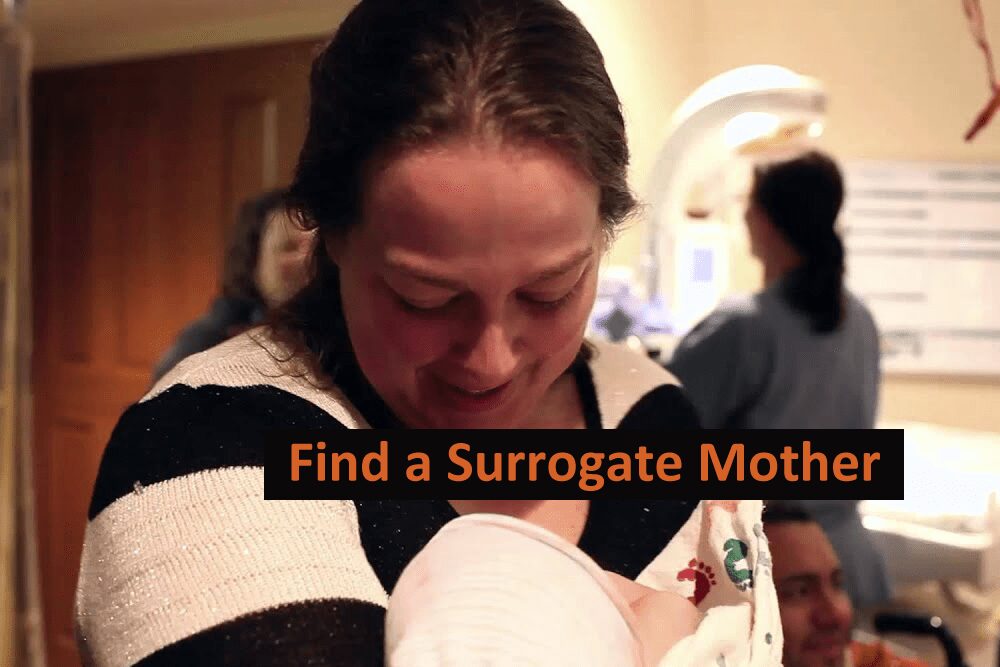What is Altruistic Surrogacy Costs: A Comprehensive Guide
Altruistic surrogacy is a selfless journey where a surrogate carries a child without receiving financial compensation beyond medical expenses, insurance, and related pregnancy costs. This form of surrogacy significantly reduces expenses compared to commercial surrogacy, making it a more accessible option for intended parents.

Altruistic surrogacy costs can vary a lot, from $75,000 to $100,000. This makes it a big financial challenge for those wanting to be parents. But, unlike commercial surrogacy that can cost over $200,000, there are cheaper options. These options are made possible by the kindness of others.
The costs for this kind of surrogacy include medical, legal, and administrative fees. Those wanting to be parents have to manage these costs carefully. The main reason the surrogate helps is because she cares and wants to assist others who can’t have kids.
Key Takeaways
- Altruistic surrogacy involves no direct financial compensation for the surrogate
- Costs typically range between $75,000 and $100,000
- Surrogate’s motivation is primarily emotional and compassionate
- Medical and legal expenses are covered by intended parents
- Personal networks often serve as primary sources for finding surrogates
- Legal recognition varies across different jurisdictions
📞 Get in Touch for a Free Surrogacy Consultation
📱 +91-8800481100 (WhatsApp | LINE | Viber)
📧 neelam@ivfconceptions.com
🌐 www.ivfconceptions.com
Related surrogacy Costs guides:
What is the average surrogacy cost?
How much does surrogacy cost in Ukraine?
How much does surrogacy cost in Georgia?
How much does surrogacy cost in India?
What is the Surrogacy Cost in Colombia?
What is the Surrogacy cost in Mexico?
What is the surrogacy cost with family members?

Understanding Altruistic Surrogacy: Definition and Basic Concepts
Altruistic surrogacy is a special way of third-party reproduction. It’s when a surrogate carries a child without getting paid, except for basic costs. This method is all about kindness and a deep bond between the surrogate and the intended parents.
Key Characteristics of Altruistic Surrogacy
The main traits of altruistic surrogacy are:
- Little to no money motive for the surrogate
- Usually, it’s family or close friends involved
- Only covers medical and pregnancy-related costs
- There’s a lot of emotional support among them
Differences Between Altruistic and Commercial Surrogacy
Altruistic and commercial surrogacy are quite different. Here’s why:
| Aspect | Altruistic Surrogacy | Commercial Surrogacy |
| Financial Compensation | Expenses only | Big payment |
| Motivation | Emotional support | Money |
| Typical Relationship | Close personal bond | Professional deal |
Legal Framework in the United States
The laws on gestational carrier costs change a lot from state to state. About 33% of people say there’s shame around surrogacy. Knowing the law is key.
Some states let altruistic surrogacy, while others have strict rules or ban it.
It’s vital to understand the legal details if you’re thinking about surrogacy to have a child.
Parents-to-be need to check the laws in their state. They must make sure they follow the rules on third-party reproduction and surrogacy.

Benefits and Challenges of Choosing Altruistic Surrogacy
Altruistic surrogacy is a special way to become parents. It has both good points and tough spots. This method means a surrogate carries a baby without getting paid much, just for medical and legal costs.
Some big pluses of altruistic surrogacy are:
- It’s cheaper than paying for egg donation
- You might get closer to the surrogate
- You’ll feel more involved during the pregnancy
- It can save money on IVF costs
The money side of altruistic surrogacy is interesting. Fees for the surrogate are much lower. They usually get paid only for pregnancy-related costs.
But, there are also downsides:
- Finding a willing surrogate can be hard
- It might strain your personal relationships
- There are complex legal issues
- Everyone involved might feel more emotionally exposed
Dealing with these issues needs careful planning and clear talk. You must understand the emotional and practical sides of surrogacy well. Intended parents should be ready and have realistic hopes.
Altruistic Surrogacy Cost: Breakdown of Essential Expenses
How Much Does Altruistic Surrogacy Cost?
The cost of altruistic surrogacy varies by country and region. Here’s an estimated breakdown:
- United States: $75,000 – $100,000, depending on medical needs, legal requirements, and state laws.
- Canada: $40,000 – $80,000, as surrogates are only reimbursed for expenses.
- United Kingdom: $20,000 – $50,000, with strict legal guidelines ensuring only reasonable expenses are covered.
- Australia: $25,000 – $60,000, with surrogacy laws varying by state.
- Ukraine & Georgia: $30,000 – $50,000, offering affordable legal surrogacy programs.
Why is Altruistic Surrogacy Cheaper?
- No Surrogate Compensation: Unlike commercial surrogacy, intended parents do not pay a base fee to the surrogate.
- Fewer Agency Fees: Many altruistic surrogacies are arranged within families or close circles, avoiding high agency costs.
- Lower Legal Fees: While legal contracts are still required, costs may be reduced due to a more straightforward process.

Medical Expenses and Healthcare Costs
Medical costs are a big part of surrogacy expenses. These include:
- Initial fertility screening: $2,500 – $5,000
- IVF procedures: $25,000 – $35,000
- Prenatal care and monitoring: $10,000 – $15,000
- Delivery expenses: $15,000 – $25,000
Legal and Administrative Fees
Legal fees are also a big part of the cost. These include:
- Legal consultation: $5,000 – $10,000
- Surrogacy agreement drafting: $3,000 – $7,000
- Court procedure expenses: $2,000 – $5,000
Insurance and Contingency Planning
It’s important to be financially ready for surrogacy. Budget for:
| Expense Category | Estimated Cost Range |
| Comprehensive Surrogacy Insurance | $8,000 – $15,000 |
| Emergency Medical Fund | $5,000 – $10,000 |
| Additional Contingency Expenses | $3,000 – $7,000 |
Note: Total altruistic surrogacy expenses can range from $100,000 to $140,000, depending on individual circumstances and specific requirements.
Pros and Cons of Altruistic surrogacy
Altruistic surrogacy is a special way to build a family. It has both good points and challenges. Knowing about these can help people decide if it’s right for them.
The main benefits of altruistic surrogacy are:
- Substantial cost savings compared to commercial surrogacy arrangements
- Deeper emotional connection with the gestational carrier
- Potential for a more personal and meaningful surrogacy journey
- Reduced financial burden in affordable surrogacy options
Gestational carrier pricing in altruistic surrogacy is much lower. Intended parents only pay for necessary costs. This can cut down surrogacy expenses by up to 50% compared to commercial options.
However, there are also challenges:
- Limited availability of willing surrogates
- Potential emotional complexities in personal relationships
- Less structured screening processes
- Risk of undefined boundaries between parties
Legal matters are very important in altruistic surrogacy. Good agreements protect everyone involved. They make sure everyone knows what to expect and avoid misunderstandings.
The success of altruistic surrogacy relies on transparent communication, mutual respect, and a shared commitment to creating a family.

Finding and Matching with an Altruistic Surrogate
Altruistic surrogacy is a journey that needs careful planning and emotional understanding. Finding the right surrogate is a complex process. It requires thoughtful preparation and strategic thinking.
Potential routes for finding an altruistic surrogate include:
- Personal networks of family and friends
- Specialized surrogacy support groups
- Professional surrogacy agencies
- Online matching platforms dedicated to compassionate surrogacy costs
Screening and Evaluation Process
Choosing an altruistic surrogate involves a detailed screening process. This ensures the best possible outcome. The evaluation includes:
- Detailed medical history assessment
- Psychological evaluations
- Physical health examinations
- Background checks
Altruistic surrogacy focuses on reimbursement rather than direct payment. Financial help usually covers:
- Medical expenses
- Travel costs related to appointments
- Pregnancy-associated medical treatments
- Reasonable living expenses during pregnancy
Building Relationships with Potential Surrogates
Building strong, open relationships is key to successful altruistic surrogacy. Communication, respect, and clear expectations are crucial. They help create a supportive partnership for everyone involved.
Legal Considerations in Surrogate Selection
Legal rules for surrogate reimbursements differ by state. Detailed legal agreements protect both sides. They cover financial, medical, and potential future issues.
Getting help from experienced surrogacy agencies can make the process easier. They ensure a smooth and emotionally supportive journey.

Alternative to high-cost surrogacy in USA
Gestational Surrogacy can be very expensive for those who want to become parents. It’s important to plan your budget carefully. Looking for cheaper options can make it more affordable.
Planning Your Surrogacy Budget
Getting the cost right for surrogacy is key. Here are some tips to help manage your budget:
- Create a detailed financial plan to track all costs
- Save money for unexpected bills
- Look into insurance that might cover some costs
- Check out special loans for fertility treatments
Tips to Reduce Surrogacy Expenses
To save money on surrogacy, you need to be smart. Here are some ideas:
- Look into shared-risk programs with clinics
- Apply for grants from fertility groups
- Think about using donated embryos
- Talk to doctors about payment plans
Low-Cost Surrogacy Alternatives
Going abroad for surrogacy can save a lot of money. It’s important to do your homework on international options:
| Country | Estimated Total Cost | Key Considerations |
| Ukraine | $50,000 – $70,000 | Legal framework supportive of surrogacy |
| Georgia | $55,000 – $75,000 | Competitive medical infrastructure |
| Colombia | $60,000 – $80,000 | Emerging surrogacy destination |
While going abroad can be cheaper, there are things to think about. Legal issues, travel costs, and risks are important. Getting help from experts is a good idea.
Is Altruistic Surrogacy Right for You?
While it offers cost savings, finding a willing surrogate can be challenging, and emotional complexities may arise. Legal guidance remains essential to ensure a smooth and protected journey.
Altruistic surrogacy is an ethical and cost-effective option for many intended parents, but finding a willing surrogate can be challenging. It is essential to consult legal professionals to ensure compliance with country-specific surrogacy laws.
Conclusion
Altruistic surrogacy cost is always less than commercial surrogacy cost. Parents-to-be should do thorough research and get professional advice. This way, they can save money compared to commercial surrogacy. But, they still face big expenses like medical tests, legal papers, counseling, and treatments.
Getting help from experts is key in altruistic surrogacy. Doctors, lawyers, and counselors can guide you through the process. Each journey is different, needing a plan that fits both your feelings and budget.
In the end, altruistic surrogacy brings hope to those facing fertility issues. By understanding costs, talking openly, and being ready, parents can start this journey. It’s a path to building a family with love and care.

FAQs for cost of altruistic surrogacy
What exactly is altruistic surrogacy?
Altruistic surrogacy is when a woman carries a baby for someone else without getting paid. She only gets back her medical costs and other pregnancy-related expenses. It’s about helping others who can’t have a baby themselves, driven by kindness and a desire to assist.
How does altruistic surrogacy differ from commercial surrogacy?
The main difference is money. In altruistic surrogacy, the woman is often a family member or close friend. She does it for free, or at least, not for a lot of money. Commercial surrogacy pays a lot more, which can be thousands or tens of thousands of dollars.
Altruistic surrogacy is often cheaper and builds a closer bond between the surrogate and the intended parents.
What are the typical costs involved in altruistic surrogacy?
Even though the surrogate doesn’t get paid, the intended parents still have to pay for a lot. This includes: • Medical procedures and fertility treatments • Prenatal and delivery healthcare costs • Legal and administrative fees • Insurance coverage • Psychological screening • Travel and support expenses • Potential contingency funds These costs can add up to $20,000 to $50,000. It’s a big expense, but less than commercial surrogacy.
Is altruistic surrogacy legal everywhere in the United States?
No, surrogacy laws vary by state. Some states support it fully, while others have strict rules or unclear laws. California is very supportive, but states like New York and Michigan have more complex rules.
It’s important to talk to a reproductive law expert who knows your state’s laws before starting.
How do I find an altruistic surrogate?
You can find a surrogate through:
- Personal networks (family members, close friends)
- Fertility support groups
- Online surrogacy communities
- Specialized surrogacy agencies offering altruistic programs The best matches often come from people you already know and trust.
What medical screenings are required for an altruistic surrogate?
The surrogate needs to go through many medical tests. These include:
- Complete physical health examination
- Reproductive health assessment
- Genetic screening
- Psychological evaluation
- Infectious disease testing
- Comprehensive medical history review These tests make sure the surrogate is healthy and ready for pregnancy, and they help avoid health risks.
What legal protections should be in place for an altruistic surrogacy?
Even without payment, a detailed legal agreement is key. It should cover:
- Clear parental rights documentation
- Detailed expectations and responsibilities
- Medical decision-making protocols
- Financial expense reimbursement terms
- Contingency plans for potential complications
- Emotional and psychological support provisions A reproductive law attorney can help make a strong, protective agreement.
Are there alternatives if altruistic surrogacy seems too challenging?
Yes, there are other options. You could try:
- Embryo adoption
- International surrogacy in more affordable countries
- Shared-risk surrogacy programs
- Fertility grant programs
- Exploring medical tourism for more cost-effective reproductive treatments. Each option has its own legal, ethical, and financial considerations. You’ll need to do your research and get professional advice.
Source Links
- American Society for Reproductive Medicine (ASRM)
https://www.asrm.org - Resolve: The National Infertility Association
https://resolve.org - European Society of Human Reproduction and Embryology (ESHRE)
https://www.eshre.eu - Society for Assisted Reproductive Technology (SART)
https://www.sart.org

